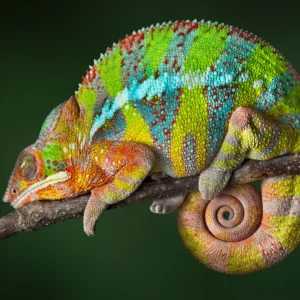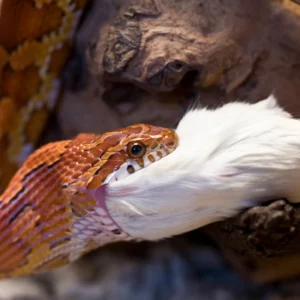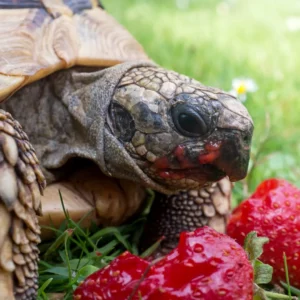Blog
Exotic Pet Starvation and Proper Feeding
Starvation in pet reptiles and amphibians is a serious concern that can lead to severe health problems or even death. Understanding the causes, recognizing the signs, and knowing how to prevent and address this issue is crucial for any exotic pet owner. This comprehensive guide will delve into the why and how of preventing starvation in these unique pets, ensuring they lead healthy, fulfilled lives.
Understanding the Causes
Improper Diet: One of the most common reasons for exotic pet starvation is an improper diet. Each species has specific nutritional requirements, and failing to meet these can lead to malnutrition and starvation.
Environmental Stress: Inadequate habitat conditions, such as incorrect temperature, humidity, or lighting, can lead to stress, reducing your pet’s appetite and leading to starvation.
Illness: Health issues, including parasitic infections, metabolic bone disease, or organ failure, can decrease appetite and lead to exotic pet starvation.
Feeding Techniques: Improper feeding techniques or the introduction of unfamiliar food can result in reduced food intake.
Recognizing the Signs of Exotic Pet Starvation
Signs of exotic pet starvation in reptiles and amphibians may include lethargy, weight loss, sunken eyes, and a noticeable decrease in muscle mass. In severe cases, the spine and ribs may become prominent, and the animal may show a lack of interest in food. Early recognition of these signs is key to preventing long-term damage or death.
How to Prevent Exotic Pet Starvation
Educate Yourself: Understanding the specific dietary needs of your pet is paramount. Research your exotic pet to learn about their preferred diet, including the type and variety of food they require.
Create an Optimal Environment: Ensure your pet’s habitat is set up correctly, with appropriate temperature gradients, humidity levels, and lighting to mimic their natural environment as closely as possible. This can significantly impact their willingness to eat.
Regular Health Check-ups: Routine veterinary care is essential for identifying and treating any health issues that could affect your exotic pet. A specialized reptile or amphibian vet can offer advice tailored to your pet’s specific needs.
Monitor Eating Habits: Keep a close eye on your pet’s eating habits and body condition. Any changes could indicate a problem that requires attention. Use our tailored nutrition calculators for exotic pets today!
How to Address Exotic Pet Starvation
Consult a Veterinarian: At the first sign of starvation, consult a veterinarian experienced in exotic pet care. They can diagnose underlying health issues and provide a treatment plan.
Gradual Reintroduction of Food: If your pet has been starving, reintroduce food slowly to avoid refeeding syndrome, a potentially fatal condition that can occur if starved animals are fed too much, too quickly.
Supplementation: Your vet may recommend supplements to address nutritional deficiencies. These should be administered according to their instructions to avoid complications.
Force-Feeding: In severe cases, force-feeding may be necessary under the guidance of a veterinarian. However, this should be a last resort, as it can be stressful for your exotic pet.
Hydration: Ensuring your exotic pet stays hydrated is crucial, especially if they are not eating well. Provide fresh water and consider misting amphibians regularly to maintain hydration.
Long-term Strategies for Health
Varied Diet: Offer a varied diet to meet all nutritional needs and keep your pet interested in eating. For reptiles, this may include a mix of vegetables, fruits, and live prey. Amphibians may require a variety of insects or specialized pellets.
Environmental Enrichment: Enriching your pet’s environment with hiding spots, climbing structures, or water features (for amphibians) can reduce stress and promote natural feeding behaviors.
Education and Support: Joining forums, clubs, or groups dedicated to reptile and amphibian care can provide valuable support and advice from experienced owners.
Conclusion
Preventing starvation for your exotic pet requires a commitment to providing a balanced diet, creating an optimal living environment, and ensuring regular veterinary care. By understanding the needs of your pet and being vigilant for signs of distress, you can ensure they remain healthy and thrive under your care. Remember, when in doubt, always seek the advice of a professional to provide the best possible care for your reptilian or amphibian companion.
CLICK HERE to use our Exotic Nutrition Calculator, master their nutrition today!



